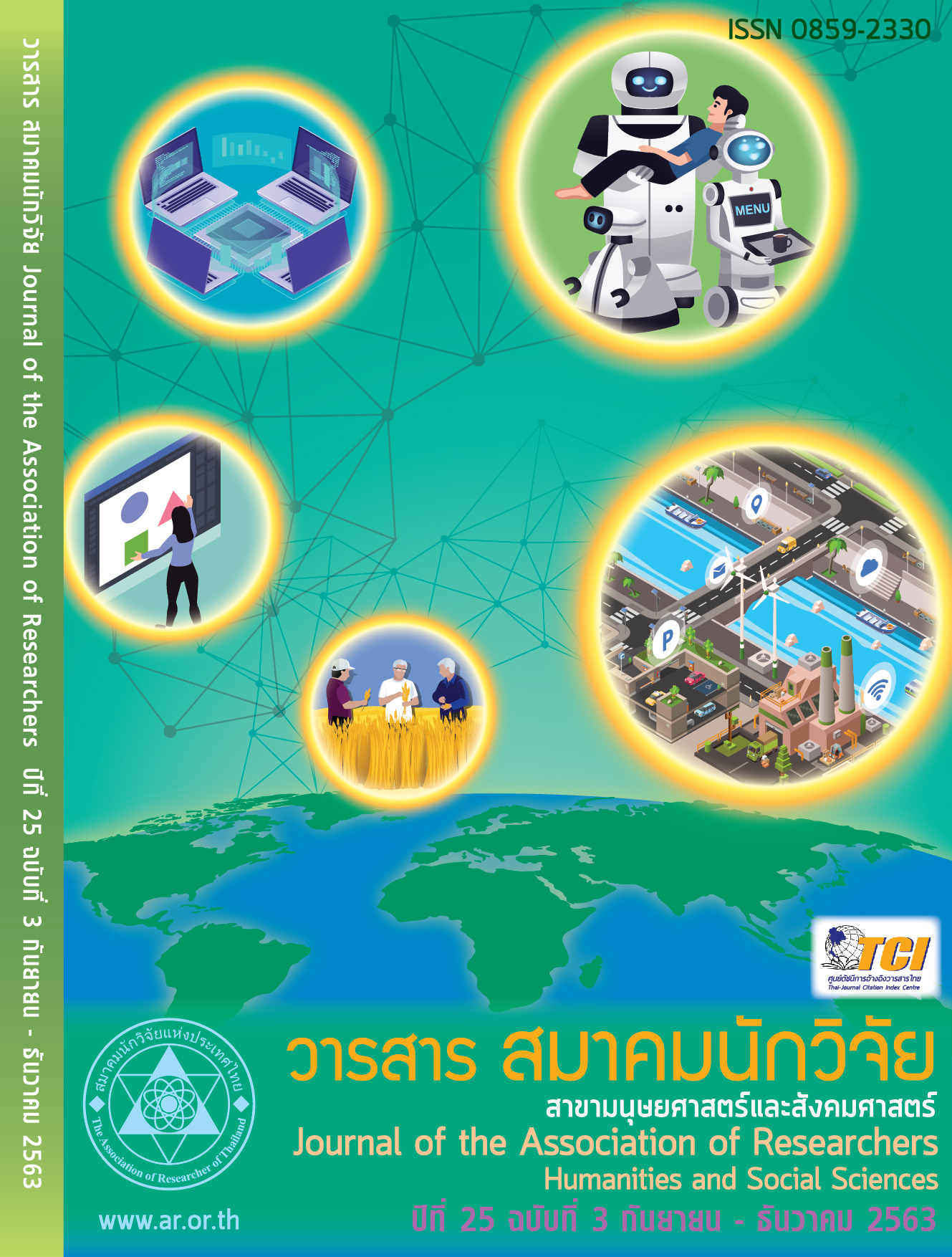The Application of influencer marketing Strategies to raise awareness for Russian tourists
Main Article Content
Abstract
The objective of this research is to apply influencer marketing strategies to raise awareness for Russian tourists by interviewing 32 target groups are representatives from the executives of government agencies involved in tourism policy, Russian travel agencies, influencers, and Russian tourists. The research shows that Russian tourists prefer to travel to Thailand especially in the coastal provinces. Russians living in the Siberian Federation and Far Eastern Federation often travel to Thailand on chartered airlines, travel agencies offer travel packages combined with tickets. Most of them are aware of information about Thai tourism through online media. The top 3 most popular channels are IG, VK, and FB. Influencers in the Russian travel market are divided into 2 groups, based on the number of followers: Celebrities and those interested in traveling especially to create experiences for themselves and share them via social media. Influencer marketing strategies influenced the perception of Russian tourists. In which thought leaders can guide, convince followers to trust, share, and imitate from having a good image, reputation, expertise, and many followers including the ability to create content that is stimulating the target audience to like and share as well as various activities in order to build rapport with the target group to have a loyalty and follow up continuously for a long time.
Article Details
บทความที่ปรากฏในวารสารนี้ เป็นความรับผิดชอบของผู้เขียน ซึ่งสมาคมนักวิจัยไม่จำเป็นต้องเห็นด้วยเสมอไป การนำเสนอผลงานวิจัยและบทความในวารสารนี้ไปเผยแพร่สามารถกระทำได้ โดยระบุแหล่งอ้างอิงจาก "วารสารสมาคมนักวิจัย"
References
กัญญารินทร์ วัฒนเรืองนันท์. (2558). อิทธิพลของ Beauty influencer ที่มีต่อพฤติกรรมการซื้อเครื่องสำอางของผู้บริโภคกลุ่มวัยทำงานตอนต้นในเขตกรุงเทพมหานคร (รายงานการวิจัย). กรุงเทพฯ:มหาวิทยาลัยธรรมศาสตร์.
กิติยา สุริวรรณ์, พิชามน พวงสุวรรณ, และอุรพี จุลิมาศาสตร์. (2559). ความสัมพันธ์ระหว่างผู้มีอิทธิพลทางความคิด ผู้บริโภค และตราสินค้า. วารสารการสื่อสารและการจัดการ นิด้า, 2 (3), 1-18.
จุฑาภรณ์ ทองเพ็ง. (2554). ความคิดเห็นของนักท่องเที่ยวที่มีต่อการจัดการการท่องเที่ยวเชิงวัฒนธรรมของวัดโสธรวรารามวิหาร จังหวัดฉะเชิงเทรา (รายงานการวิจัย). ชลบุรี: มหาวิทยาลัยบูรพา.
ณงลักษณ์ จารุวัฒน์. (2560). การตลาด 4.0 (พิมพ์ครั้งที่ 1). กรุงเทพฯ: เนชั่นบุ๊ค.
ภพพรหมินทร์ วโรตม์วัฒนานนท์. (2558). ปัจจัยที่มีอิทธิพลต่อการสื่อสารแบบปากต่อปากในยุคดิจิทัล. วารสารการสื่อสารและการจัดการ, 1(1), 86-100.
เลิศพร ภาระสกุล. (2559). พฤติกรรมนักท่องเที่ยว (พิมพ์ครั้งที่ 3). กรุงเทพฯ: จุฬาลงกรณ์มหาวิทยาลัย.
วรมน บุญศาสตร์. (2558). การสื่อสารการตลาดสู่กลุ่มผู้บริโภคเจเนอร์เรชั่น ซี ในยุคดิจิทัล. วารสารการสื่อสารและการจัดการ, 1(1), 14-30.
เสรี วงษ์มณฑา และชุษณะ เตชคณา. (2553). การตลาด 4.0 ในบริบทประเทศไทย. วารสารเศรษฐศาสตร์และนโยบายสาธารณะ, 8(15), 1-16.
Berger, J. (2013). Contagious: Why things catch on. New York: Siman & Schuster inc.
Biaudet, S. (2017). Influencer Marketing as a Marketing Tool: The process of creating an Influencer Marketing Campaign on Instagram. Finland: Arcada University of Applied Sciences.
Bjurling, L., & Ekastam, V. (2018). Influencer Marketing's effect on brand perception: A consumer involvement perspective. Sweden: Lund University.
Bruns, I. (2018). Perceived authenticity and trust in social media-driven influencer marketing and their influence on intensions-to-buy of 18-24-year-olds in Ireland. Ireland: Dublin Business School.
East-West Digital News. (2013). Online Video in Russia from privacy to global integration. Russia: East-West Digital News.
Jansen, L. (2018). An exploratory study of how influencer marketing is used by beauty brands in Norway. Norway: Nord University.
Kotler, Kartajaya, and Setiawan. (2010). Marketing 3.0 from products to customers to the human spirit. New York: John Wiley & Sons inc.
Lisichkova, N., & Othman, Z. (2017). The impact of influencers on online purchase intent. Sweden: Mälardalen University.
Messiaen, J. (2017). How the opportunity threshold of Instagram influencer impacts consumer behavior: The Moderating role of purchase involvement. Belgium: Ghent University.
Pakwan, S. (2018). Influencer Marketing. Retrieved from https://nextempire.co/stories/next-business/.
Robert, J. (2017). Reasons Influencer Marketing Boosts Brand Awareness. Retrieved from https://vero-asean.com/influencer-marketing-boosts-brand-awareness/.
Schepers, R. (n.d.). The rise of influencer marketing. Netherlands: University of Amsterdam.
Tourism Review News. (2017). Russian Outbound Tourism Finally Growing. Retrieved from https://www.tourism-review.com/russian-outbound-tourism-increasing-news10292.
Tylik, V. (2018). Digital Marketing in Russia in 2018. Russia: Russia Marketing and Advertising Agency.
UNWTO & ETC. (2015). Understanding Russian Outbound Tourism: What the Russian Blogosphere is saying about Europe. Spain: the World Tourism Organization.


